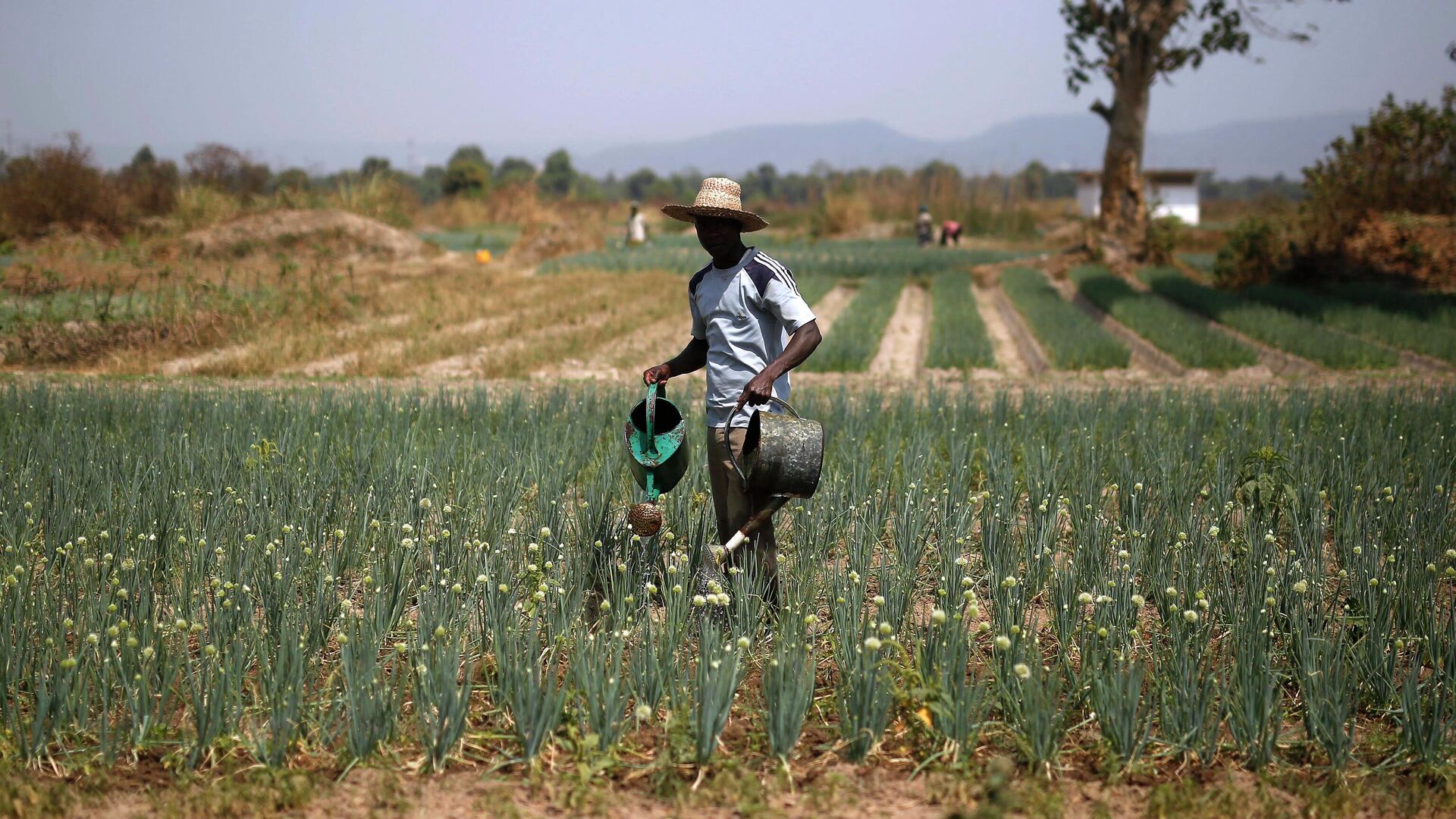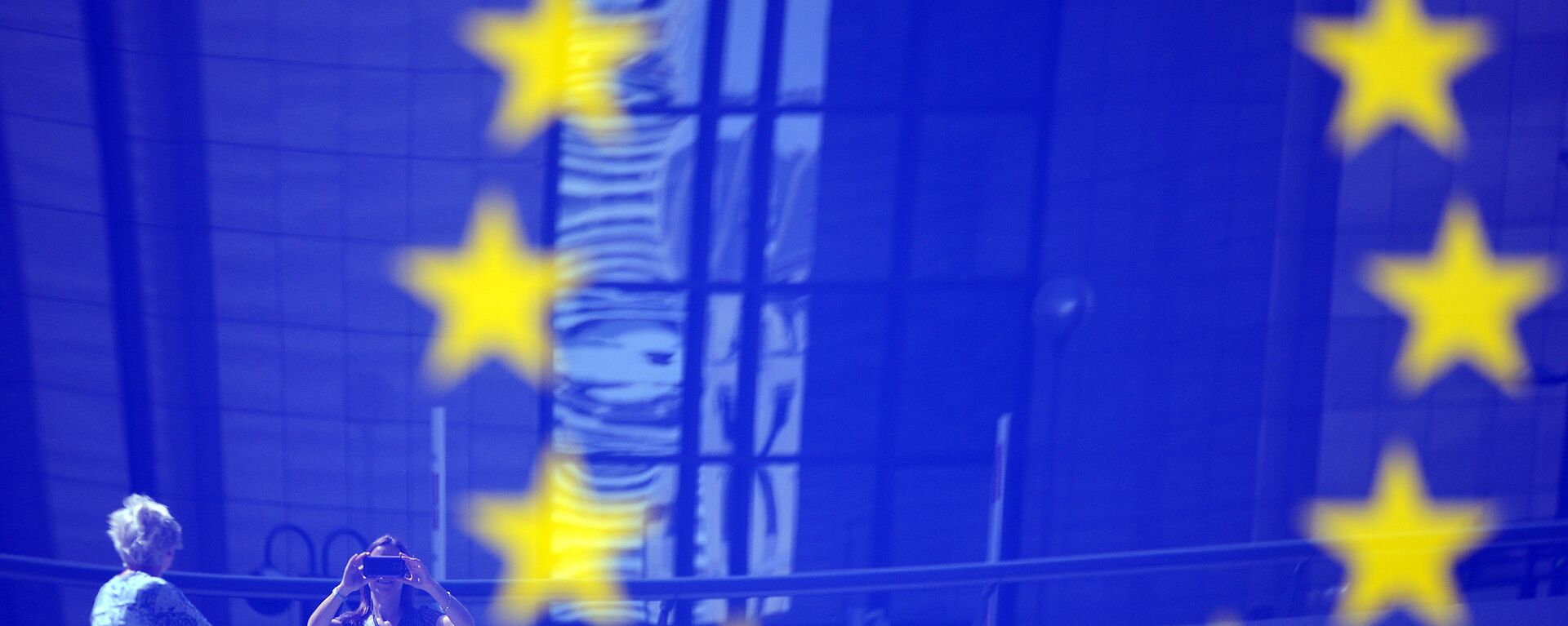https://sputnikglobe.com/20230606/ukraine-aid-robbing-needy-nations-of-relief-swedish-human-rights-bodies-caution-1110940272.html
'Ukraine Aid' Robbing Needy Nations of Relief, Swedish Human Rights Bodies Caution
'Ukraine Aid' Robbing Needy Nations of Relief, Swedish Human Rights Bodies Caution
Sputnik International
Numerous European nations have re-allocated aid funds earmarked for other crises to pay for the support of Ukraine, sparking accusations of double standards.
2023-06-06T09:46+0000
2023-06-06T09:46+0000
2023-06-06T09:46+0000
ukraine
sweden
relief
humanitarian aid
humanitarian crisis
humanitarian disaster
humanitarian assistance
humanitarian issues
humanitarian relief
world
https://cdn1.img.sputnikglobe.com/img/07e6/09/0a/1100633455_0:160:3073:1888_1920x0_80_0_0_5e0ec79f27ef95e078069e7ad2fb0658.jpg
Swedish human rights organizations have warned that more people will end up living in poverty and pay a hefty price when Swedish aid is redirected towards Ukraine.The Scandinavian nation ranks among the countries that dole out the largest share of its gross national income, GNI, to aid, and Ukraine is today the single largest recipient of Swedish assistance.The increased support for Kiev started under the Social Democrats in 2022, and the current minority government led by the Moderates has largely continued down the same track. Furthermore, it even scrapped the goal that one percent of the country's GNI should go to international relief efforts, which triggered sharp criticism from human rights organizations.Brunander slammed the change as irresponsible, arguing that Sweden doesn't care about people in other countries ravaged by humanitarian crises.Similar criticism of such cutbacks to the detriment of others has been voiced by Lotta Johnsson Fornarve of the Left Party, who contended that it was a mistake to abandon the one-percent spending target.Nevertheless, Development Minister Johan Forsell of the Moderates dismissed the criticism by stressing that Sweden, despite being a "generous donor," "cannot be everywhere and do everything."Previously, concerns have been on the rise that growing support for Ukraine, which includes military, financial and humanitarian assistance alike, will cut into humanitarian aid for other crises-stricken nations in need across the globe, ranging from Ethiopia and Sudan to Yemen and Syria. Earlier, numerous European nations reallocated aid earmarked for other humanitarian crises to foot the bill for 'supporting Ukraine'.Europe's, and by extension the West's overzealous approach and differential treatment, where Ukrainian refugees were eagerly accepted in large numbers while asylum seekers from other parts of the world are increasingly facing hurdles, sparked criticism of double standards and accusations of maintaining an effective "hierarchy" of peoples. Critics argued that the West's response sent a painfully clear message to non-Ukrainians excluded from benefits: that they are less deserving of aid and acceptance.
https://sputnikglobe.com/20230325/how-has-ukrainian-conflict-affected-the-eus-well-being-1108787281.html
ukraine
sweden
Sputnik International
feedback@sputniknews.com
+74956456601
MIA „Rossiya Segodnya“
2023
News
en_EN
Sputnik International
feedback@sputniknews.com
+74956456601
MIA „Rossiya Segodnya“
Sputnik International
feedback@sputniknews.com
+74956456601
MIA „Rossiya Segodnya“
ukraine crisis, ukrainian refugees, relief support, relief efforts, international crises, aid to ukraine, how much sweden spends on ukraine, how much aid ukraine received, who receives ukrainian aid
ukraine crisis, ukrainian refugees, relief support, relief efforts, international crises, aid to ukraine, how much sweden spends on ukraine, how much aid ukraine received, who receives ukrainian aid
'Ukraine Aid' Robbing Needy Nations of Relief, Swedish Human Rights Bodies Caution
Numerous European nations have redirected funds earmarked for other crises to pay for 'supporting' Ukraine, thereby triggering concerns of preferential treatment and accusations of double standards.
Swedish human rights organizations have warned that more people will end up living in poverty and pay a hefty price when Swedish aid is redirected towards Ukraine.
The Scandinavian nation ranks among the countries that dole out the largest share of its gross national income, GNI, to aid, and Ukraine is today the single largest recipient of Swedish assistance.
The increased support for Kiev started under the Social Democrats in 2022, and the current minority government led by the Moderates has largely continued down the same track. Furthermore, it even scrapped the goal that one percent of the country's GNI should go to international relief efforts, which triggered sharp criticism from human rights organizations.
"We are moving money from people who live in extreme poverty and oppression to Ukraine. Of course, we stand with Ukraine, but it would have been much better to maintain the one-percent target," Mattias Brunander, director general of Diakonia, a faith-based Swedish development organization headquartered in Stockholm, told local media.
Brunander slammed the change as irresponsible, arguing that Sweden doesn't care about people in other countries ravaged by humanitarian crises.
Similar criticism of such cutbacks to the detriment of others has been voiced by Lotta Johnsson Fornarve of the Left Party, who contended that it was a mistake to abandon the one-percent spending target.
"To claim that the aid becomes more effective just because you cut it, I think is very strange. Businesses seldom become more efficient when they receive less money," Fornarve argued.
Nevertheless, Development Minister Johan Forsell of the Moderates dismissed the criticism by stressing that Sweden, despite being a "generous donor," "cannot be everywhere and do everything."
Previously, concerns have been on the rise that growing support for Ukraine, which includes military, financial and humanitarian assistance alike, will cut into humanitarian aid for other crises-stricken nations in need across the globe, ranging from
Ethiopia and
Sudan to
Yemen and
Syria. Earlier, numerous European nations reallocated aid earmarked for other humanitarian crises to foot the bill for 'supporting Ukraine'.
Europe's, and by extension the
West's
overzealous approach and differential treatment, where
Ukrainian refugees were eagerly accepted in large numbers while asylum seekers from other parts of the world are increasingly facing hurdles, sparked criticism of double standards and accusations of maintaining an effective "hierarchy" of peoples. Critics argued that the West's response sent a painfully clear message to non-Ukrainians excluded from benefits: that they are less deserving of aid and acceptance.



